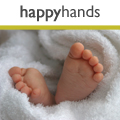Baby
Shopping
Buyer's Guide to From-Birth Pushchairs
Whether you want something light and slim or a big pram, there are several options for all budgets, that are suitable for new babies.
Buyer’s Guide to From-Birth Pushchairs
Most excited parents-to-be shop for their first pushchair a couple of months before their baby is born. Often, it’s a gift from the grandparents and therefore might even be the most expensive single purchase made – with whizz-bang models now rolling out with price tags of £1000 and up.
However, while a new baby does need somewhere safe and comfortable to sit or lay down when you are out and about, a from-birth pushchair doesn’t have to cost the earth.
What is a ‘from-birth’ pushchair?
Whether you are buying a pram, a pushchair or a travel system, the main factor which determines whether or not a model is suitable from birth is that the baby can lay down flat enough.
Small babies cannot support their heads, and if they are seated in a position that is too upright, they are in danger of falling forward, injuring themselves or even choking because their neck is not being properly supported.
Any pushchair, pram or travel system you are looking at will clearly state if it is safe to use from birth.
If you prefer to buy a pushchair suitable from 3 months, you will need to transport your baby in a correctly sized sling or baby carrier until your child is at least 12 weeks old (or older, for premature babies).
From-birth options
Pram
Decades ago, the only choice for a new baby was to be swaddled to his mother or be wheeled around in a huge pram. Nowadays, whilst you can still by a traditional Silver Cross pram, even their Classic Sleepover model will convert into a pushchair when you no longer need a pram.
The main body of a pram allows your baby to lay down – useful for your baby’s naps when you are out and about. The carrycot can usually also be used as a crib for the early weeks.
However, once your baby can begin to move around and possibly even sit up, you won’t be able to use the pram safely as your child could fall out. This can sometimes therefore mean it’s only suitable up to around six months, so buying a pram that converts into a pushchair is a good move – these are usually referred to as ‘two-in-one’ or ‘three-in-one’ models where the pram and pushchair settings will see you through from baby to small infant to toddler.
Travel system
A travel system is a pushchair that can be added to using a carrycot (to create a pram), or with an infant carrier which can be clicked on to the top of the pushchair’s body to create a higher, rear-facing seat for a young baby.
Some travel systems are designed so that you unclick say, the carrycot, and replace it with the carrier. This reduces the weight of the whole thing when you push it around. However, others simply allow you to click a carrier into position with the main seat/carrycot body still in place. This might be a little more heavy but can be much more convenient.
Many parents find this flexibility popular, though travel systems have come under scrutiny because some experts are concerned that small babies should not be left to sit in an infant carrier for prolonged periods. On shorter shopping trips you should find this is fine, but if you are out for longer, use the pram setting for smaller babies.
Some companies might use other names for providing this many options in one. For example, Mamas & Papas have a fleet of Combi or Combination style models – able to work as a pram, a carrycot for sleeping at home or away, with an infant carrier and as a pushchair.
Pushchair
A ‘from-birth’ pushchair is different from a lighter buggy because it will have a seat that can recline fully to a lie-flat position for new babies. Ideally it should also have a cosy lining and good suspension to make it a comfortable ride, though you can add a soft lining like a sheepskin, if you don’t feel the pushchair offers the kind of lie-down comfort that a pram would.
One of the appealing aspects of choosing a full-recline seat pushchair over a pram or travel system, is that it is usually less bulky to push – useful for women of a lighter build or who are going to be recovering from a caesarean. Pushchairs also tend to take up less room when being stored or in the boot of car or on the bus, and are usually less bulky to wheel around shops. This option is often cheaper, too, though you should make sure you don’t skimp too much on your first pushchair – the less you pay the more likely you are to find that features like adjustable handlebar height and good suspension are not included. These little details can really save your back when you’re a tired new parent!
Related Articles
Buyer's guide to lightweight pushchairs
Maclaren create new Buggy Workouts
Bugaboo's Donkey rides into view
Mima pushchair: a new exclusive for John Lewis
Don't get caught out after dark without your Buggi Lights
Related Products
East Coast, Wooden Combination Highchair
Have Your Say
Be the first person to comment on this article, just post a comment below.





In order to post a comment you need to be a member. Join Now | Sign in